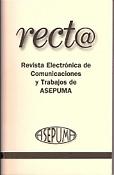Racionalidad Individual Dinámica en Juegos Diferenciales Medioambientales
Keywords:
Juegos diferenciales, Cooperaci´on, Racionalidad individual din´amica, Equilibrios por incentivos cre´ıbles, Econom´ıa medioambientalAbstract
This paper revises some of the research lines proposed in the literature of dynamic games to study how a cooperative solution agreed upon by the players at the initial date of the game can be sustained over time. The first research line is the dynamic individual rationality, also called sustainability of cooperation or dynamic stability. In particular, we identify conditions under which two concepts of intertemporal individual rationality, time-consistency and agreability, can be satisfied for linear-state and linearquadratic differential games, when side-payments are or not allowed. The second research line presents the credible incentive equilibrium strategies as a mechanism to maintain cooperation over time. We derive conditions to test the credibility of such strategies for the two previous classes of games. We show that the proposed linear incentive strategies are not always credible. Further, we provide alternative non-linear credible strategies which suggest that we should not stick only to linear incentive strategies even in the simple classes of differential games such as the linear-state and linear-quadratic ones. In both approaches the use of the derived conditions is illustrated on two differential games taken from the literature on environmental economics, in particular, games of cooperation in the control of transboundary pollution.
Downloads
Publication Facts
Reviewer profiles N/A
Author statements
Indexed in
-
—
- Academic society
- N/A
- Publisher
- UMA Editorial. Universidad de Málaga
Downloads
Published
How to Cite
Issue
Section
License

This work is licensed under a Creative Commons Attribution-NonCommercial 4.0 International License.





